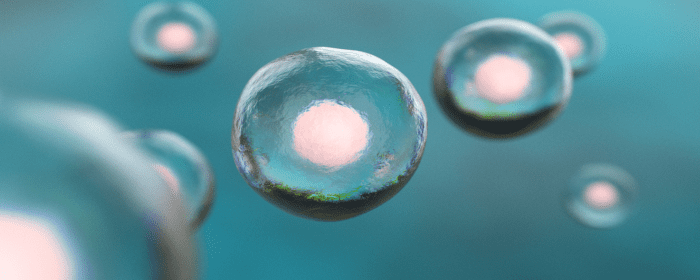Alzheimer’s disease (AD) is the most common cause of dementia, accounting for an estimated 50%-70% of dementia cases worldwide. Characterized by memory loss and cognitive impairment, AD is progressive, debilitating, and fatal. In addition, it’s estimated that new cases of AD around the globe are occurring at a staggering rate of 20 per minute with an established effective treatment yet to be discovered.
To date, research has demonstrated an advanced understanding of AD’s development and devastating – and eventually fatal – outcomes, but has only been able to identify drugs that intervene too late in the progression of the condition.
Considering that stem cells have a detailed and documented record of their ability of self-renewal, proliferation, differentiation, and transformation into different types of central nervous system neurons and glial cells and that they have been successful in AD animal models, it is believed that stem cells have the potential to treat patients with AD.
In reviewing the progress of stem cells as a potential therapeutic treatment for AD, Liu et al. call for new treatments, including the removal of toxic deposits and the ability to replace lost neurons to be developed and as a way to stimulate neural precursors, prevent nerve death, and enhance structural neural plasticity. The authors also review the pathophysiology of AD and the application prospect of related stem cells based on specific cell types.
Liu et al. point out that, although AD models using animal research have been demonstrated to be successful, animal research is difficult to translate into human trials, and, to date, none have been able to replicate the complex environment observed in the human brain. Considering this, the authors conclude that it is challenging, at best, to characterize the beneficial effects of stem cells in AD based solely on previously conducted animal models.
As a result of this review, the authors also conclude that while stem cells used in AD and animal models have achieved certain results, there are still several factors that require consideration. Among these factors is the fact that this type of stem cell therapy requires neurosurgical procedure and immunosuppression which contributes to ongoing concerns related to controlling the proliferation and differentiation of stem cells, the targeting of molecular markers, and the development of cell delivery systems.
The authors acknowledge that progression in the study of stem cells in AD applications should be made more efficient because of recent technological advances in stem cells, specifically using hydrogels, nano-technology, and light therapies to produce more efficient delivery of treatment.
While these advances should help, Liu et al. also point out that a number of obstacles, including uncertainty about the amyloid hypothesis, differing objectives related to preventing progression vs symptomatic treatment, and demonstrating the relationship between stem cell treatment and complete AD cure, still need to be addressed.
Considering the findings of this review, the authors conclude that stem cell therapy for AD carries enormous promise, but the successful application will most likely be dependent upon consistent early diagnosis of the condition in order to prevent further brain cell deterioration and will likely be combined with an administration of existing medication as a way to most effectively treat and/or prevent AD.
Source: Mesenchymal stem cell-based therapy for autoimmune diseases.” https://pubmed.ncbi.nlm.nih.gov/30623280/.


 St. Petersburg, Florida
St. Petersburg, Florida
